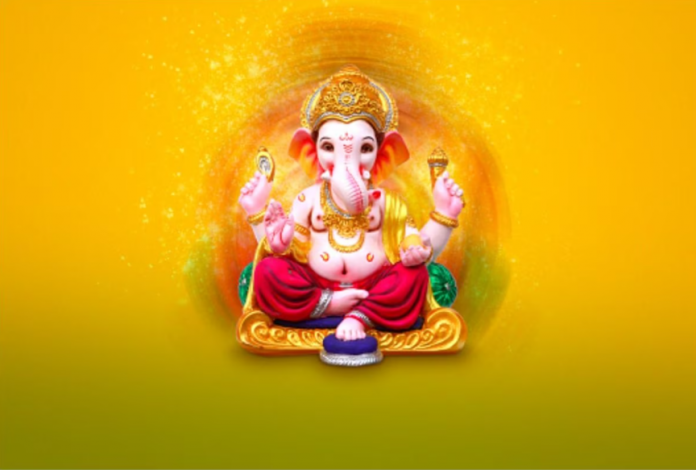Ganesh Chaturthi, also known as Vinayaka Chaturthi, is a Hindu festival celebrated to honor Lord Ganesha, the elephant-headed deity who is widely revered as the remover of obstacles and the god of wisdom, prosperity, and good fortune. This festival typically falls in the Hindu calendar month of Bhadrapada, usually in August or September in the Gregorian calendar. Here’s the story, significance, and importance of Ganesh Chaturthi:
1. Story of Ganesh Chaturthi: The legend of Lord Ganesha’s birth is a popular narrative associated with this festival. According to Hindu mythology, Goddess Parvati, the consort of Lord Shiva, created Lord Ganesha out of sandalwood paste and breathed life into him. She created Ganesha to guard her privacy while she was taking a bath. When Lord Shiva returned and tried to enter Parvati’s chamber, Ganesha, being a dutiful guardian, prevented him from doing so.
A fierce battle ensued between Shiva and Ganesha, resulting in Shiva beheading Ganesha. Upon witnessing the anguish of Parvati, Shiva promised to bring Ganesha back to life. He ordered his attendants to bring the head of the first living being they encountered, which turned out to be an elephant. Shiva placed the elephant’s head on Ganesha’s body, thus reviving him and making him the elephant-headed god, Lord Ganesha.
2. Significance and Importance: Ganesh Chaturthi holds immense significance in Hindu culture and is celebrated with great fervor for several reasons:
a. Obstacle Removal: Lord Ganesha is believed to be the remover of obstacles. People invoke his blessings before starting new ventures, moving into a new house, or embarking on any significant endeavor to ensure success and to overcome obstacles and challenges.
b. Symbol of Wisdom: Ganesha is also regarded as the god of wisdom, knowledge, and learning. Devotees seek his blessings for academic achievements and the pursuit of knowledge.
c. Prosperity and Good Fortune: Lord Ganesha is associated with prosperity and good fortune. Worshiping him is believed to bring wealth and prosperity to one’s life.
d. Unity and Community: Ganesh Chaturthi is a communal festival that brings people together. It fosters a sense of unity and social harmony as communities come together to create and worship clay idols of Lord Ganesha.
e. Environmental Awareness: In recent years, there has been a growing awareness of the environmental impact of the festival due to the immersion of idols in water bodies. Many communities have started using eco-friendly materials for idol creation and opting for immersion in artificial ponds to protect the environment.
f. Cultural Celebration: Ganesh Chaturthi is not just a religious festival; it is also a cultural celebration. It includes music, dance, processions, and the exchange of sweets and gifts among friends and family.
The festival typically lasts for ten days, with elaborate rituals and daily prayers. On the final day, the idol of Lord Ganesha is taken in a grand procession to be immersed in a river, lake, or sea, symbolizing the departure of the deity while seeking his return the following year. This immersion ceremony is known as “Ganpati Visarjan.”
In conclusion, Ganesh Chaturthi is a significant Hindu festival that celebrates the birth of Lord Ganesha and is observed with great devotion, unity, and cultural enthusiasm. It symbolizes the removal of obstacles and the pursuit of wisdom, prosperity, and good fortune while emphasizing the importance of environmental consciousness in its modern form.














